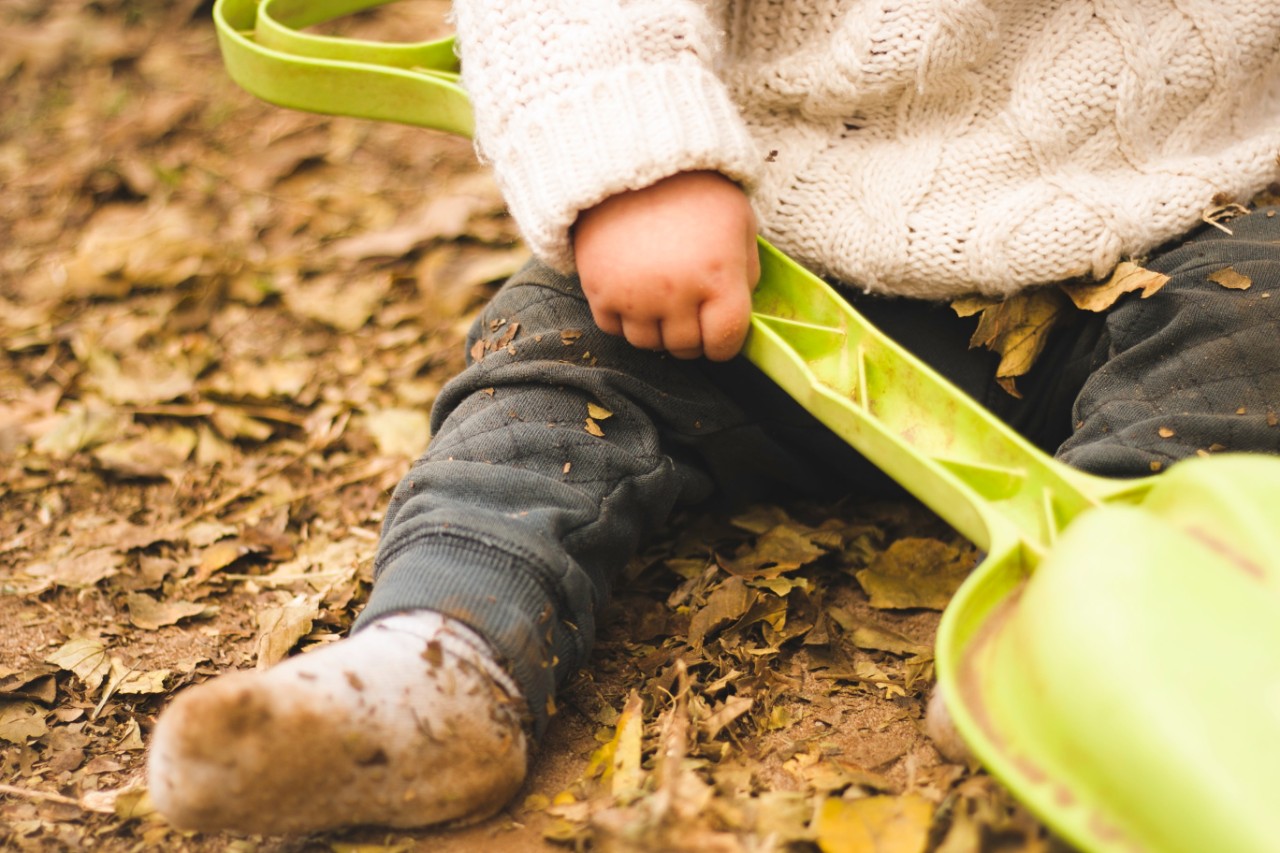Soft baby skin: looking after your baby
Changing nappies, bathing, massaging – babies experience tenderness through their skin and store the experiences to create the foundation for a trusting future.

Changing nappies
- Change nappies as quickly as possible after wetting or soiling to prevent painful skin irritation and infections. You should also change your baby when he wakes up, before he goes to bed, and after feeding.
- Most babies need around 6 to 8 nappies a day, maybe even 10 in the first few weeks.
- You can use either cloth or disposable nappies. It’s a personal choice. Both types have advantages and disadvantages
- Changing nappies takes up a lot of time every day - so it's all the more important that you can make the most of this time: to be close to your baby, to cuddle, play and play with him. You and your baby will both enjoy touching, tickling, singing and holding eye contact. You can also hang drawings or a mobile above the changing table.
- Make sure that the changing table is at a comfortable height to protect your back. Also very important: It’s also important to make sure that the changing table has side guards to prevent your child from falling off, particularly as he gets more mobile. Never leave your baby unsupervised on a changing table!
Bathing
- Not all babies enjoy water from the word go, but it won’t take long before even the most reluctant of bathers is splashing about.
- You only need to bath your baby once a week and for no longer than 10 minutes at a time, because baby skin dries out faster than that of adults.
- You can use baby oil to protect sensitive skin. Apply it only after your baby has had a bath, because if you apply it before, the oily residue may cause your baby to slip from your hands. However, you should use cream or oil very sparingly and only in case of dry or irritated skin (see “Care products” below).
- Bath fun can start as soon as your child’s belly button has healed, i.e. when it’s dry.
- Fill a baby bath or bucket with luke warm water (approximately 37 degrees Celsius).
- During bathtime, it’s important that you always have a secure grip on your baby and support his head at all times. Use one hand to keep his upper body, neck and head above water and use the other to wash him gently.
- Have a bath towel (preferably one with a hood) ready so you can wrap your baby up quickly after the bath.
Massaging:
- Massages are a great way of relaxing your baby. They reduce stress hormones and activate immune cells. This, in turn, strengthens the body’s own defences.
- Massages also help soothe and ease colic and constipation.
- For a massage to be effective, your child must enjoy it. As with bathing, there are also babies who don’t like massages.
- Do not give a massage if the baby has been vaccinated on the same day or the day before; if there is an infection or other illness.
Care products:
- Baby skin is very sensitive and quick to display minor, usually harmless red patches that disappear on their own. In the beginning, use only water to wash your baby. Later you can use a mild, non-perfumed, pH neutral wash solution without colourings.
- Use care products such as oil, lotion and creams sparingly and only in case of dry or irritated skin, because using too many or the wrong products can cause allergic reactions. Products containing alcohol, urea, emulsifiers, perfume or preservatives and cleansing wipes or neomycin creams (against infection) can be harmful to baby skin. It’s a good idea to use natural products without perfumes and conservatives, for example almond oil, olive oil or jojoba oil. Look for products labelled “hypoallergenic” as these are less likely to trigger skin allergies.
- Bath products should also always contain gentle, moisturising agents and be pH neutral.
- During his 1. Your child should not be exposed to direct sunlight before the age of six. Use creams with the highest possible sun protection factor (SPF) to protect your child’s face. Always use products based on micro-pigments; chemical products are unsuitable for baby skin. In winter, special skin ointments will protect your child’s face against the cold.


